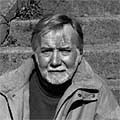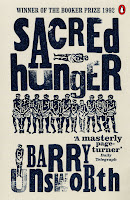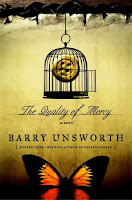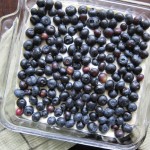 British novelist Barry Unsworth (M) has passed away at the age of 81. His first novel was published in 1966 and he had ultimately become associated with fine literary historical fiction writing. His novels covered a broad time period and his stories, complex and layered, served as background to explore human ethical issues. He is perhaps best known for his 1992 Sacred Hunger (M) for which he won the Booker Prize.
British novelist Barry Unsworth (M) has passed away at the age of 81. His first novel was published in 1966 and he had ultimately become associated with fine literary historical fiction writing. His novels covered a broad time period and his stories, complex and layered, served as background to explore human ethical issues. He is perhaps best known for his 1992 Sacred Hunger (M) for which he won the Booker Prize. “With its graphic depiction of the 18th-century slave trade and a society driven by the desire to maximize profit regardless of the human cost, this new novel by the author of Pascali’s Island offers a dark view of human nature clearly relevant to our own time. William Kemp hopes to recoup his losses in cotton speculation by entering the Triangular Trade. As ship’s doctor, his nephew Matthew experiences firsthand the horrors of shipboard life, ultimately leading a revolt that lands the crew and remaining slaves on the southeastern coast of Florida. Here they try to establish “a paradise place,” but events force Matthew to conclude that “nothing a man suffers will prevent him from inflicting suffering on others. Indeed, it will teach him the way.” Library Journal
“With its graphic depiction of the 18th-century slave trade and a society driven by the desire to maximize profit regardless of the human cost, this new novel by the author of Pascali’s Island offers a dark view of human nature clearly relevant to our own time. William Kemp hopes to recoup his losses in cotton speculation by entering the Triangular Trade. As ship’s doctor, his nephew Matthew experiences firsthand the horrors of shipboard life, ultimately leading a revolt that lands the crew and remaining slaves on the southeastern coast of Florida. Here they try to establish “a paradise place,” but events force Matthew to conclude that “nothing a man suffers will prevent him from inflicting suffering on others. Indeed, it will teach him the way.” Library Journal His most recent book The Quality of Mercy (M), published just last year. According to the New York Times Book Review, ““Unsworth is one of the best historical novelists on either side of the Atlantic, and in both Sacred Hunger and The Quality of Mercy his vast knowledge of 18th-century social and material conditions creates a rich and strange rendering of daily life that’s utterly persuasive.”
His most recent book The Quality of Mercy (M), published just last year. According to the New York Times Book Review, ““Unsworth is one of the best historical novelists on either side of the Atlantic, and in both Sacred Hunger and The Quality of Mercy his vast knowledge of 18th-century social and material conditions creates a rich and strange rendering of daily life that’s utterly persuasive.”
On the British Council Literature Team site, Unsworth gave this statement about his writing. “All my fiction starts from a feeling of unique perception, the pressure of a secret, a story that needs to be told. Before it can be properly told one needs to explore the ways, find embodiments in character, deal with the weather and the look of things, get it right. But whatever the ramifications, whatever turns the path takes, the beginning is always there, in a particular moment, a particular point of access.”
Source: http://www.thereader.ca/2012/06/in-memoriam-barry-unsworth.html



